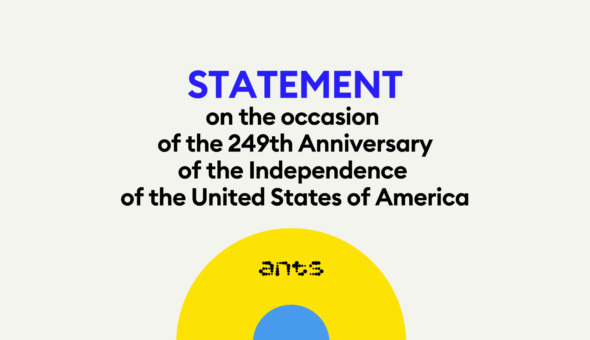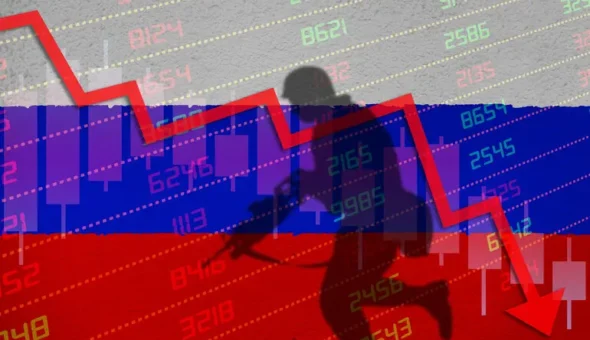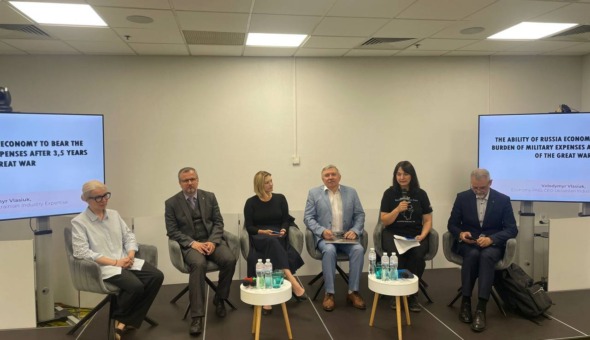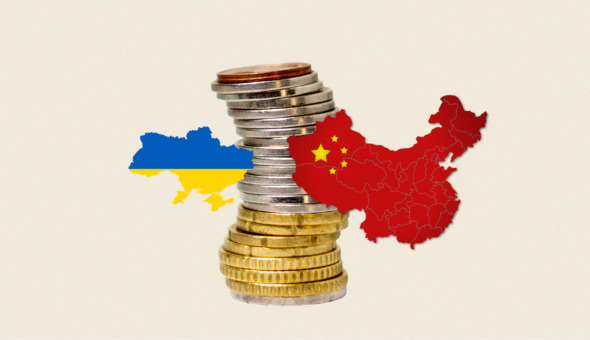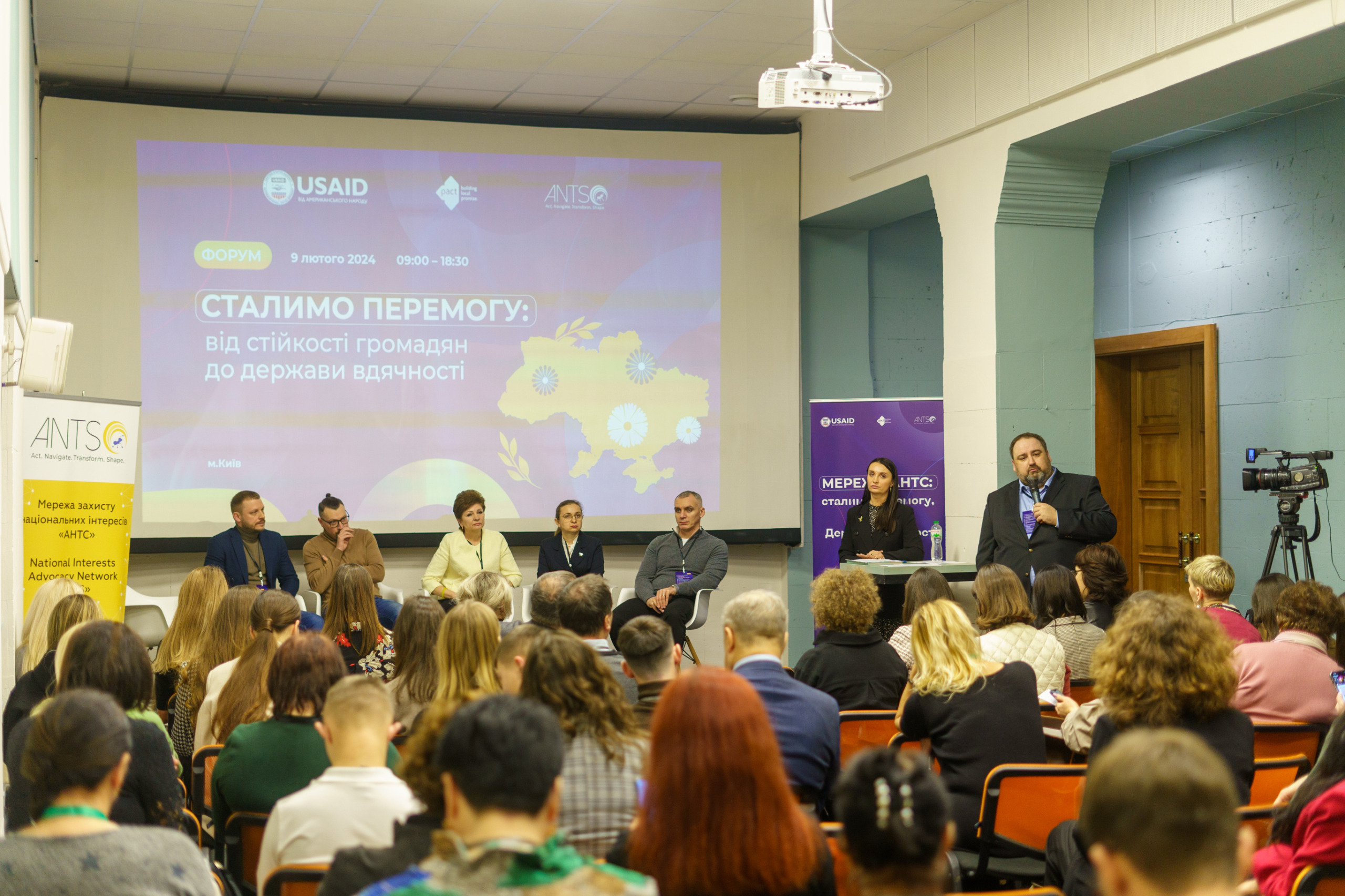
Historically, in Ukraine, civil society has played the role of a powerful catalyst and spokesperson for change. In times of unrest and upheaval, Ukrainians rally and unite, influencing both national politics and partners in the international arena.
Having passed a difficult and thorny path to the formation of its own state on the political map of the world in 1991, Ukraine continues to fight for its right to exist until now. Thousands of Ukrainians laid their lives and health on the altar of independence.
On February 24, 2022, when russia launched a full-scale invasion of Ukraine, the world saw the true sacrifice of Ukrainians. Despite the disproportion of forces, thousands of people voluntarily joined the army to defend their land with weapons in hand.
Victory in the war is not just the number one request in Ukrainian society, but a vitally urgent need for the whole world, which should unite millions of people. Ukraine advocates and demands fair punishment for russia, the aggressor country, which brought death and destruction with its “liberation” — the creation of an international tribunal, strengthening of sanctions and confiscation of frozen russian assets. Punishing russia is the way to restore justice. But justice must be ensured in Ukraine as well.
Civil society speaks most actively about the request for justice and the formation of such an agenda. The ANTS public organization is preparing the concept of the State of Gratitude, which was discussed at the forum “Standing Victory: from the resilience of citizens to the State of Gratitude”. Team members and forum participants comment on the main principles and directions of work.
Social guarantees and support
Hanna Hopko, the founder of the ANTS Network, shares her own vision of the State of Gratitude: “First of all, it is about the dignity and support of defenders. It is about the creation of institutions and mechanisms of respect, resocialization and employment for veterans. Soldiers at the front, demobilized veterans, wounded, families of the dead – want to live in the State of Gratitude.”
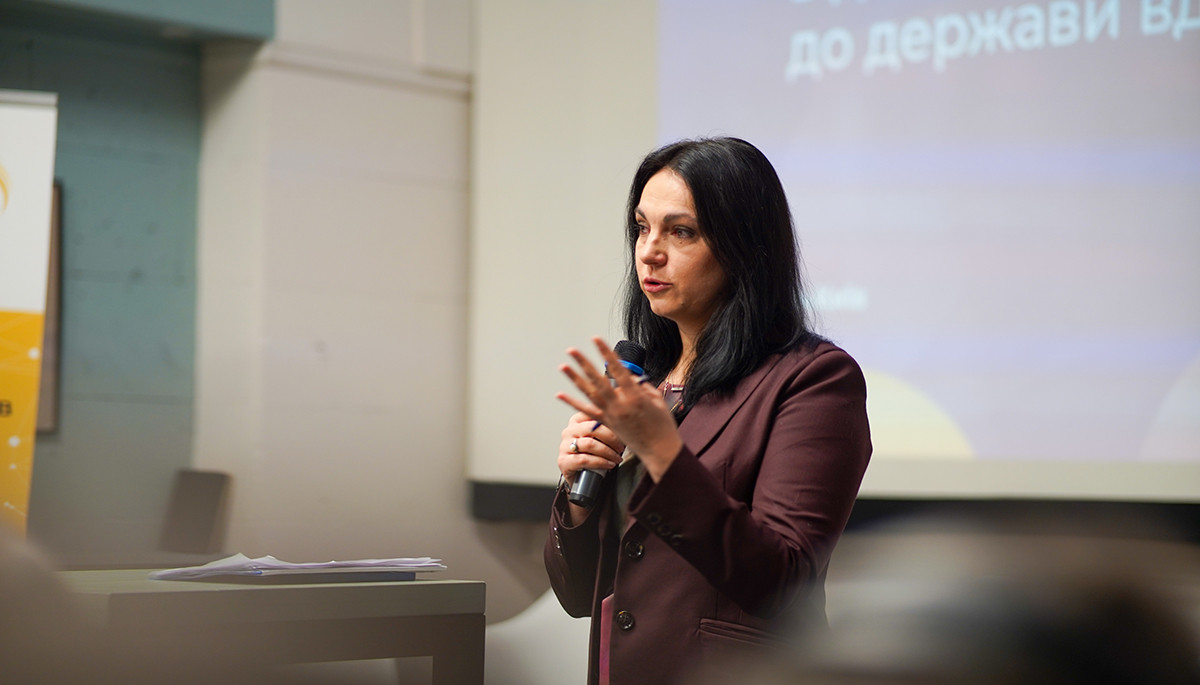
We all have the honor of realizing an eternal dream – Ukraine’s victory over the original aggressor and a strong state, says Hanna Hopko, founder of ANTS. We are talking about a state where law enforcement agencies in times of war do not monitor journalists and do not put pressure on business, where a veteran does not feel poor after returning from the front, where instead of new luxury cars for government officials, new rehabilitation centers appear for the wounded, and where social policy forms a class not of the irresponsible, but of state builders.
As of this year, for example, budget expenditures for social policy amount to 470 billion hryvnias. That is, it is the second largest budget item after defense. But can we all say that this social policy has a qualitative impact on the lives of those citizens whom it is supposed to protect?
“When studying the issue of social policy during the time of independence, it can be seen that it, in fact, has become one of the threats to national security. This is manifested in the fact that a very large part of our citizens are dependent on social protection and social policy, and this directly affects the political choice they make during the elections, explains Marianna Onufryk, an expert of the Euroscope project, – “Yes, this choice is populist.”
And the state is people, emphasizes Vasyl Segin, executive director of ANTS. Firstly, there are people who protect the state at the front. Veteran policy is a part of social policy.
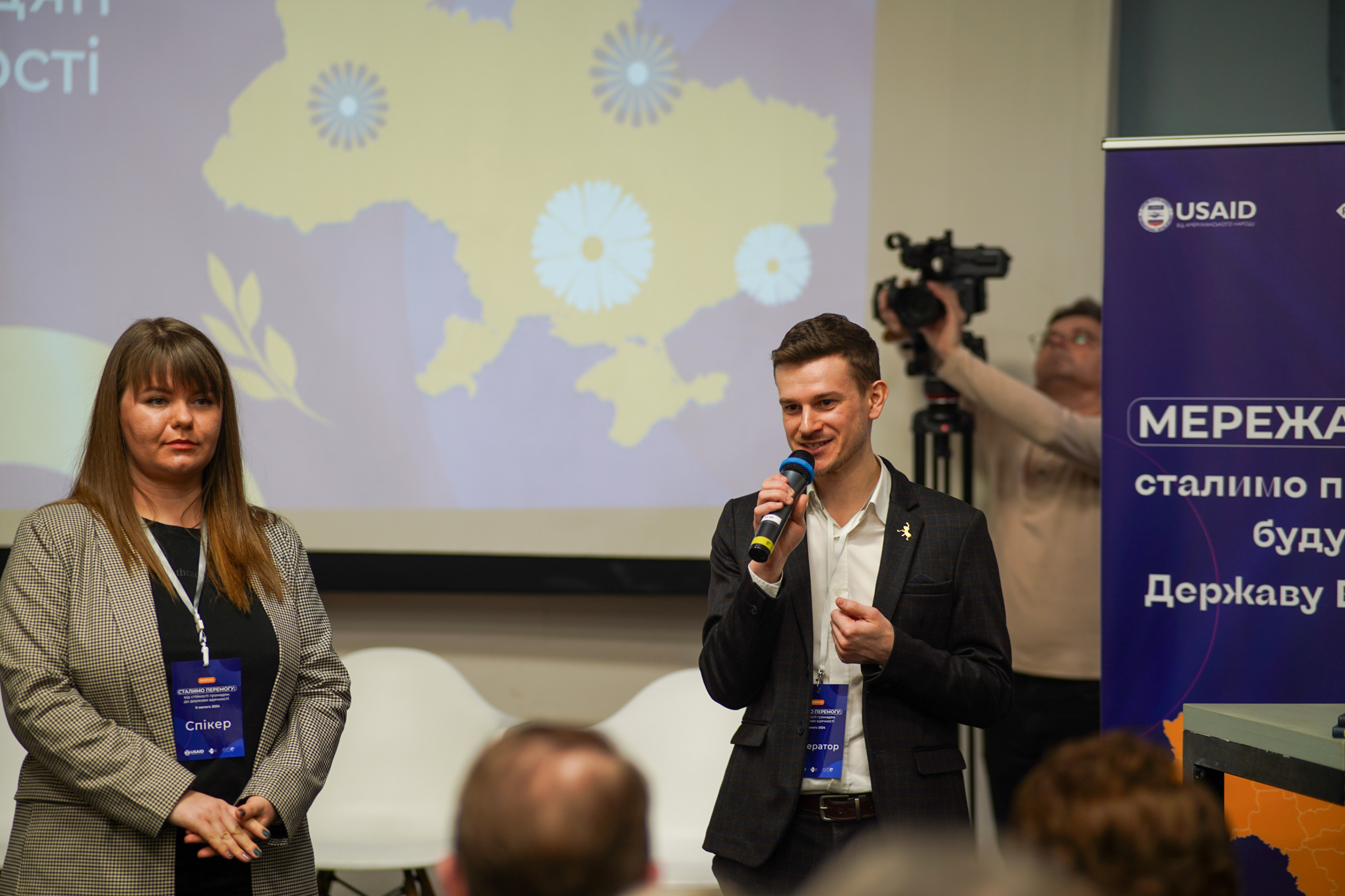
“Veteran effective policy is precisely about that motivation, which should be there for every soldier there, every mobilized person who is going to join the army,” says People’s Deputy Roman Kostenko, “He must clearly understand what will happen next, and we must understand, and what will happen after he comes back, and he has, let’s say, either a contusion, an injury, or he can’t function normally afterward, what kind of rehabilitation will he have?”
It is important to have a clear and effective veteran policy that provides them with the support they need. One of the key goals is to motivate people to join the army. This can be done by guaranteeing veterans and their families social protection, access to quality education and health care, and opportunities for employment and self-realization.
An important issue is the determination of clear criteria for granting benefits to veterans. These criteria must be fair and objective to ensure a level playing field for all veterans.
The main goal of the veteran policy is to ensure that veterans do not feel deprived and have opportunities for a fulfilling life after serving in the army.
“The state believes that the Minister of Veterans’ Affairs is actually a manager of money. No, it’s a different philosophy; it’s about defense capability. This is about my son wanting to defend Ukraine again in 10 years. Because when his father defended Ukraine, the state thanked him with favors and nothing more,” says Masi Nayyem, co-founder of the Princip NGO.
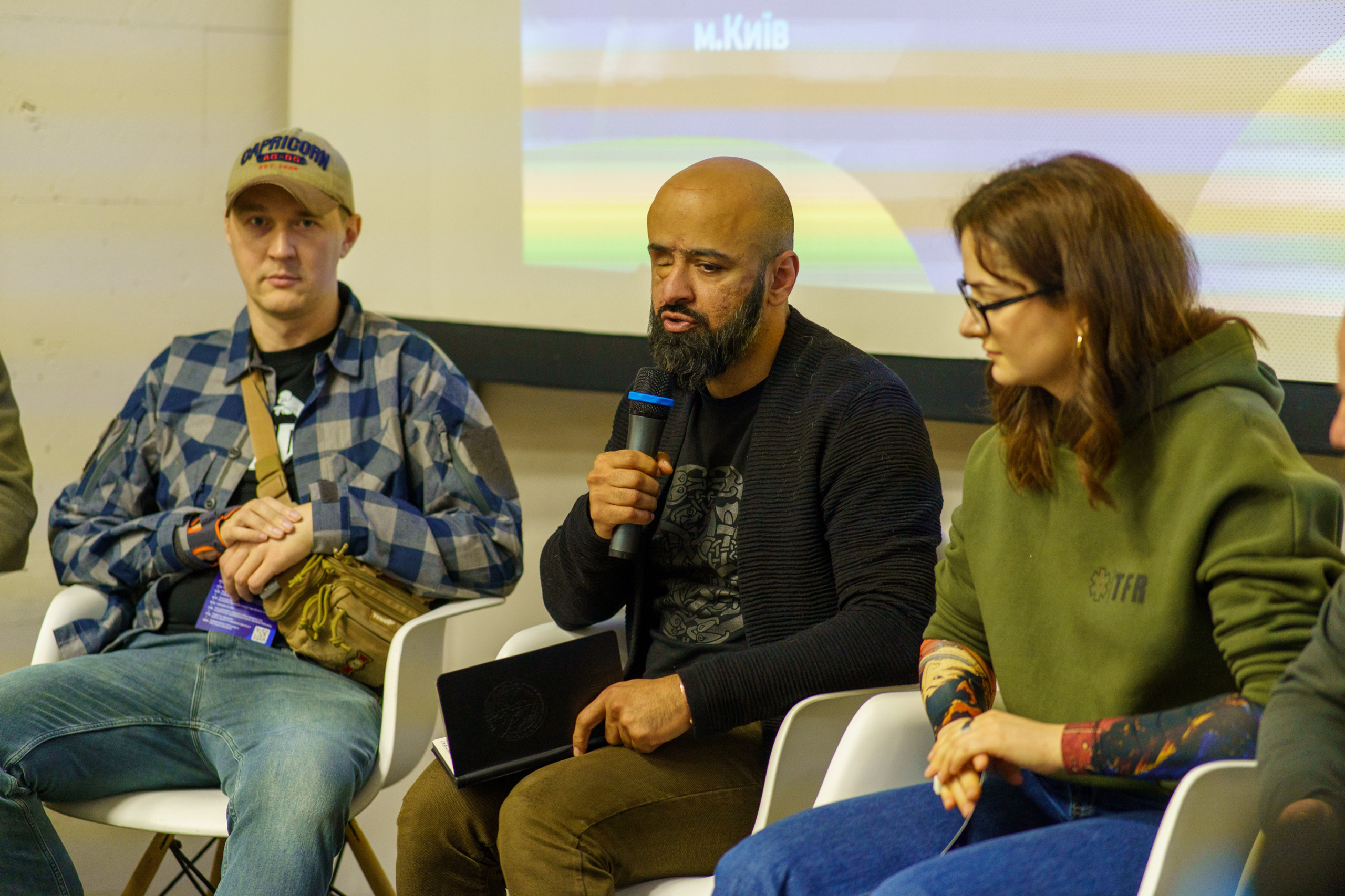
Social policy has significantly expanded its spectrum and should become worthy of those people who today protect us, protect our national interests, and are worthy of their families and their children, Marianna Onufryk believes.
Promotion of democratic values and governance
The ANTS network has been building a network of proactive partners from all regions of Ukraine for more than 4 years. Acting as a mutual support system, it is an indisputable basis for the formation of a solidary group of people, as Oleksandr Panasiuk, head of institutional development at ANTS, shares. These people are able to work with problems on the ground and spread the practices of successful solutions in the middle of the network. By understanding how local governance works and having direct access to influence from below, the network is able to form a democratic environment where proposals are created that can turn into national-scale solutions.
The inclusivity of the network, due to the presence of people, multidisciplinary organizations and other subjects of influence, enables the process of democratic problem-solving, when diverse participants are interested in the solution. It is, without exaggeration, a unique proposal, and thereby defines the more complex contours of the subjectivity of civil society as a whole and, importantly, shapes the proposals at the national and state levels.
Small communities are the basis of Ukrainian self-government—more than 90% of them. And our army consists primarily of people from small communities. Therefore, the development of communities – which is democracy and quality governance – are the main values supported and promoted by ANTS.
Firstly, the economic development of small communities will lay the foundations for true democracy. After all, successful, self-sufficient communities will be resistant to any attempts to impose an external solution. Communities will have a base to provide social justice to the families of our defenders and to give a dignified welcome to returning veterans.
ANTS already has 46 successful examples of supporting communities in economic development, achieving energy stability, and exercising civil control over community budgets and community-owned enterprises.
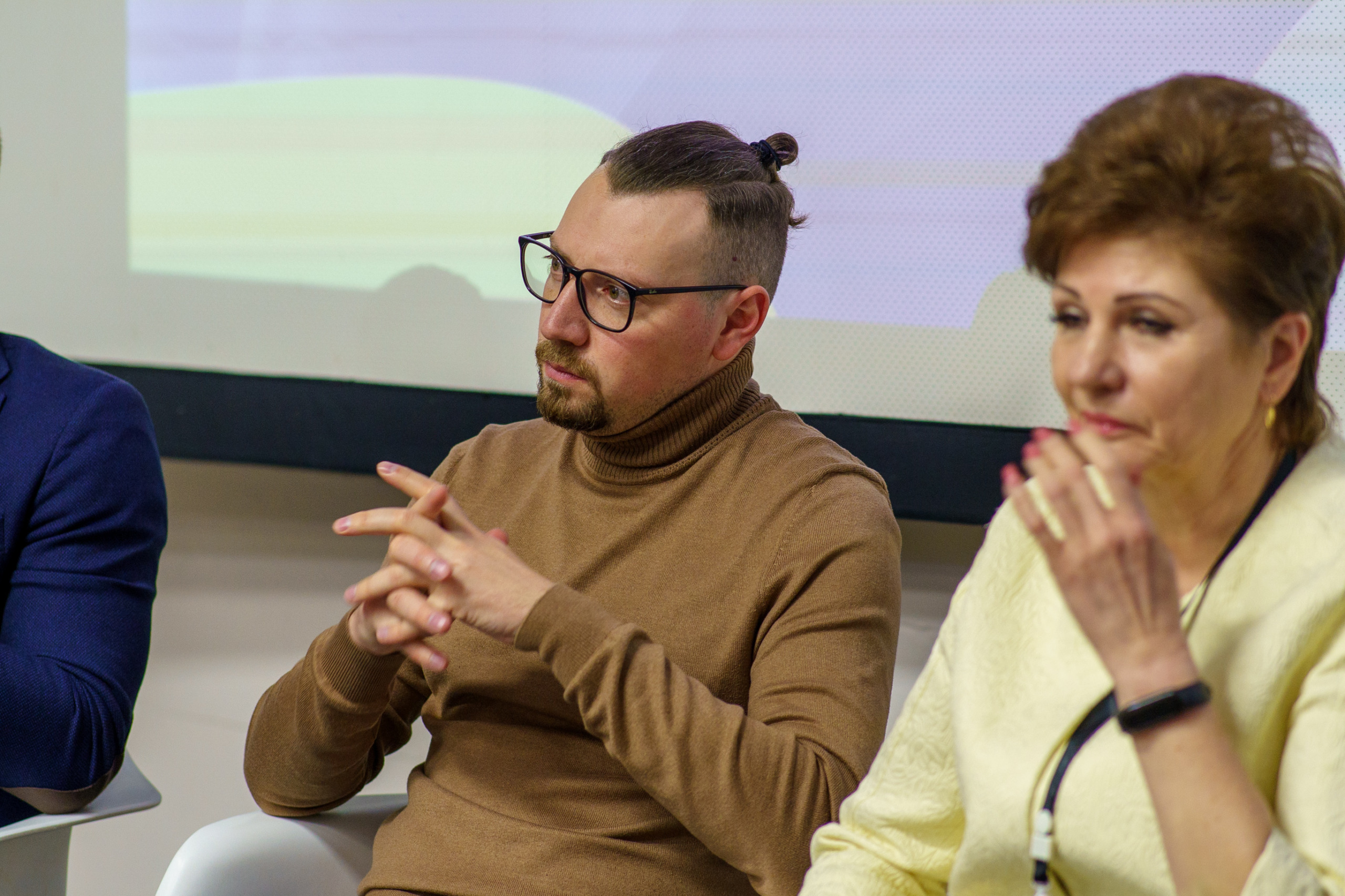
As part of its activities, the ANTS Network consistently works on the topic of social innovations and supporting young regional leaders. During the implementation period of the HALLI project, which began even before the full-scale invasion, the second wave of the implementation of the project is currently underway. The head of the project, Nataliia Tishkova shares that the team supports and helps the participants all the way. For almost 2 years, HALLI has assembled and trained about 120 teams and supported more than 6 projects, 3 of which are currently being implemented.
“We are at the stage of creating the most powerful civil society movement, because now we don’t just know the theory; we are honing the practice! But that is our greatest responsibility: no matter how much we try to hide behind collective actions, individual initiatives, actions and decisions are of great importance,” says Nataliia Tishkova.
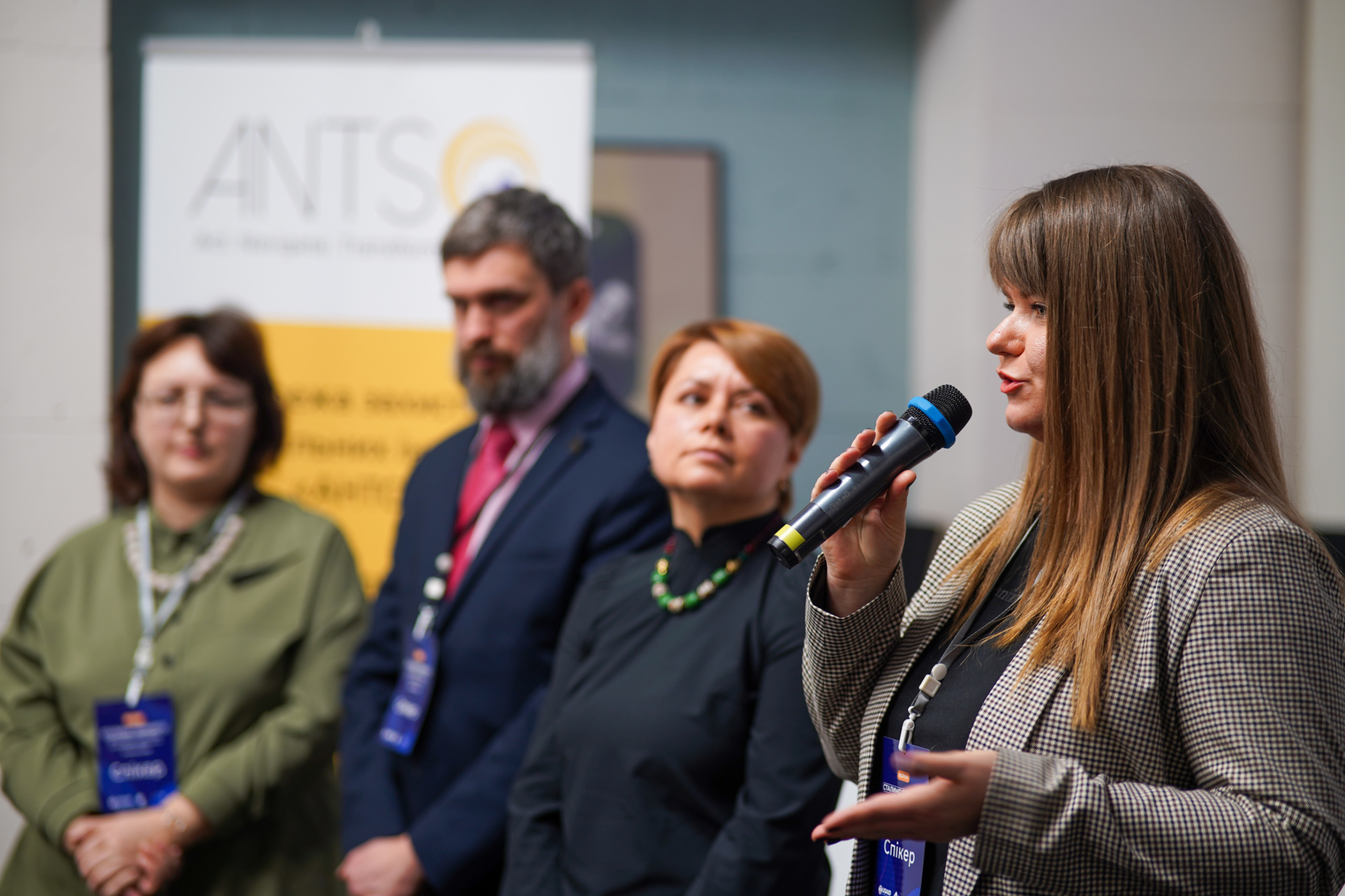
Trust between the authorities and civil society
“Speaking of the indicators of the strength and stability of what has been delivered, when it comes to permanent victory, the key indicator is the level of institutional trust, that is, the level of anonymous trust—not the rating, not the popularity, but rather the trust in themselves institutes” explained Yevhen Hlibovytskyi, director of the Frontier Institute.
Institutional trust is people’s belief that institutions act honestly and fairly. But it is logical that in order to build up this trust, first of all, institutions must work effectively. Society and the state move along parallel tracks. Society joined in, sacrificing everything. The main task is to maintain this connection between the state and society.
But a society that needs cohesion paradoxically finds itself disjointed due to a lack of trust. And the lack of trust undermines the foundations of cohesion, making it extremely difficult to overcome problems together. And here is the place for local self-government. Local self-government, where cadres grow up and decide who will be in politics tomorrow and who will be in state administration tomorrow, is where leadership is manifested. Yevhen Hlibovytskyi emphasized: “Local self-government is where social relations are taught, and in that sense, it is extremely important that we do not lose those opportunities, those benefits that the preservation of democracy at the local level gives us.”
The law and the Constitution prohibit Ukraine from holding national elections under martial law. But with local elections, the situation is a bit different, as the director of the Frontier Institute explains: “Throughout the history of Ukrainian statehood, we had a situation where higher-level elections shaped lower-level elections. That is, first presidential ones are formatted by parliamentary ones, then parliamentary ones are formatted by local ones. If the circumstances remain unchanged, we may suddenly find ourselves in 2025, when the only possible test for Ukrainian democracy may be local elections.” Thus, it is grassroots decisions that can become a reference point that will be projected on the whole country.
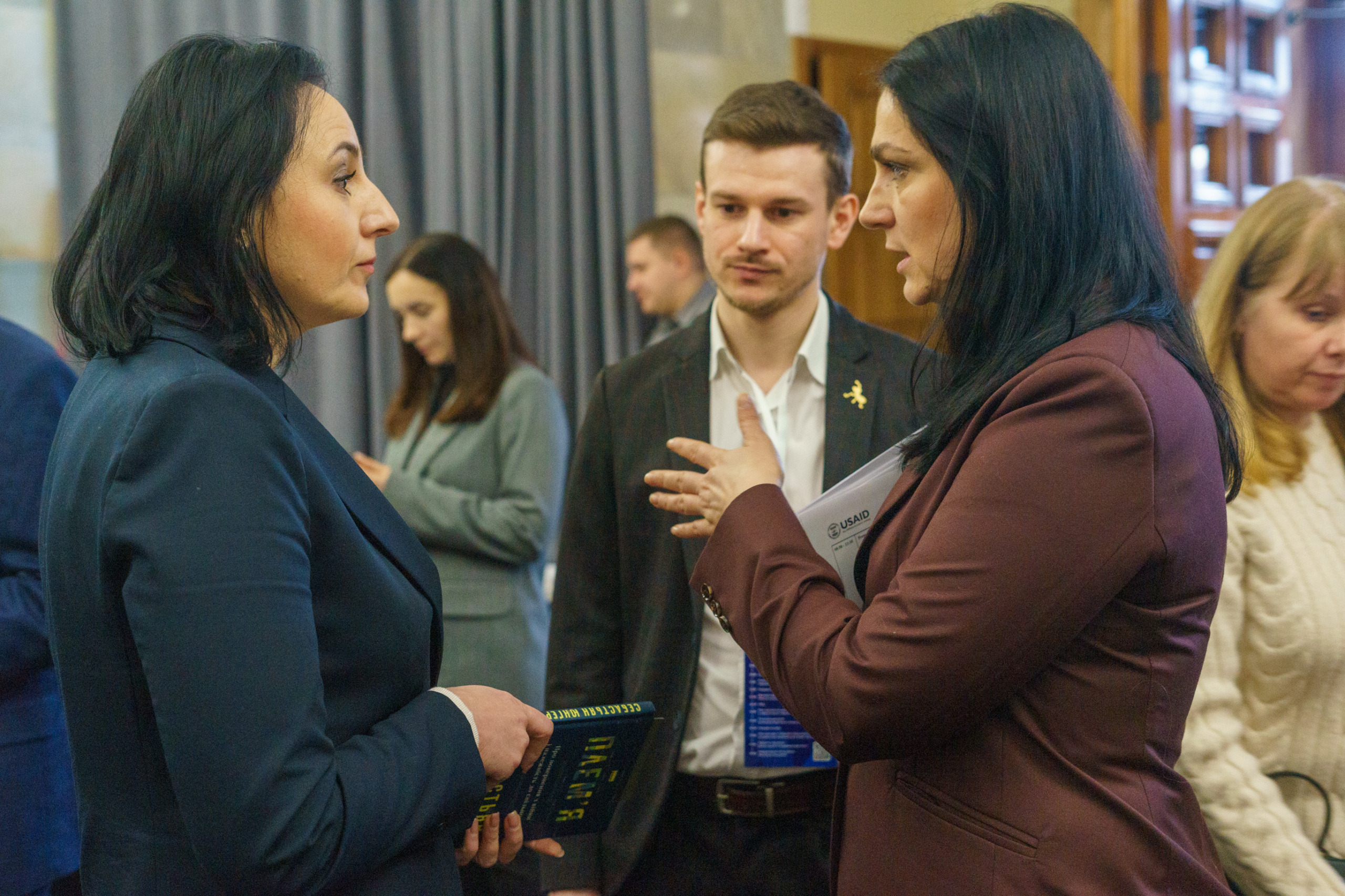
Therefore, the very issue of the stability of citizens (communities) is extremely important, because the state cannot rely exclusively on them in matters of security and defense. Citizens pay taxes, including for the maintenance of law enforcement agencies, the Armed Forces and other power structures, and the state, in turn, is responsible for protecting its citizens from external and internal threats.
The active position of citizens and their readiness for self-organization and self-defense significantly increase the resilience of society in the face of challenges, but in two years of a full-scale invasion, they are only increasing.
Ukraine is currently at war with russia, which is not only a threat to our sovereignty and territorial integrity, but also carries the risk of escalation of the conflict with NATO or its development into a larger war. In such conditions, it is important that Ukrainian society is as united as possible and ready for any scenarios of the development of events.
We need to place emphasis so that we do not have the illusion that everything is fine with us, emphasizes Hanna Hopko. “Communication with society is necessary, because what are we preparing for? Before freezing? Are we preparing to surrender the territory? Do we want, and do we deserve, when electing the president, to receive answers?”
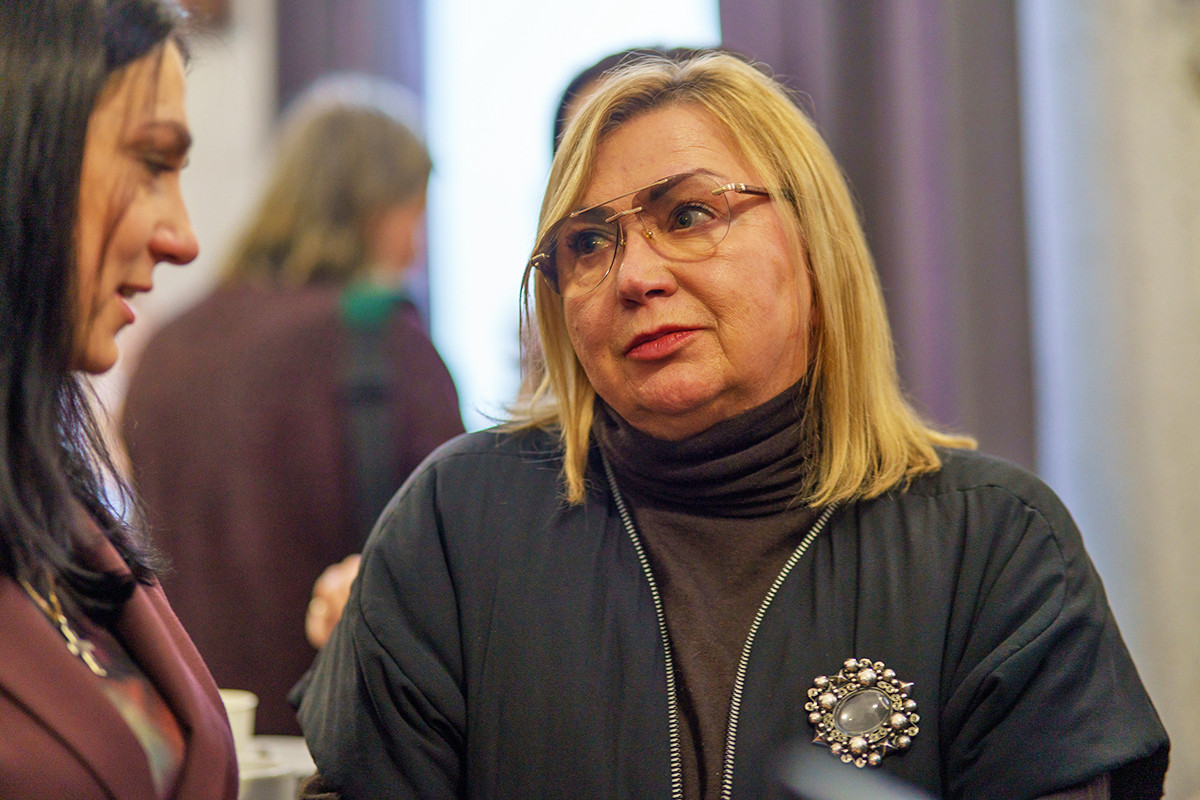
The need for a unifying environment was repeatedly discussed at the forum. “We cannot each sit in our own little house and hope for some better times, for the efforts that the boys will come and do everything for us. I have always warned and said that, in addition to the feats performed by all those who are currently at the front, they cannot be given extra responsibility. We need to take it on ourselves as well, from all sides. And, of course, to begin with, you need to think about it,” said Larysa Ivshyna, editor-in-chief of the Day newspaper. The national idea remains important to us and is the “glue” to which we hold on. But it is worth reflecting and honestly admitting to ourselves that we need modernization, recognizing our strengths and weaknesses, and working with them, Ivshina explains.
Every responsible action begins with the personal responsibility of a person, which he carries out for himself, within the limits of his professional activity, in relation to people, and the world. In fact, we are talking about four levels of responsibility: personal responsibility, responsibility for interacting with a close circle, responsibility at the country level, and responsibility at the international level. Civil society took on this responsibility; who is next?
Author:
Viktoriia Kravchuk, “ANTS”, National Interest Advocacy Networks
